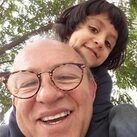- Prices/Payment
- Standard Service US$199.00
- VIP/Rush Service US$299.00
- Statement of Purpose Help
- Dr Robert Edinger, Personal Statement of Purpose Specialist
- Editing/Writing Service
- Mission
- Guarantee/Privacy Policy
- Client Testimony
- Autobiographical
- Disadvantaged Status
- Diversity
- KSA
- Undergrad
- Letters of Recommendation
- Resume /CV
- Interview!
Master’s Degree Women’s Studies, Woman Applicant from Kuwait, Additional Application Material for Application to Graduate School
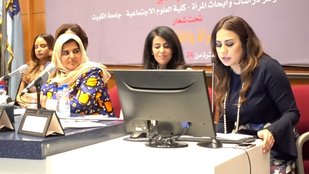
(Q) Describe a time when you took a great risk. What was the outcome?
First as a child then an adolescent, increasingly, I felt like a slave. By the time that I had become a young woman, I took the risk of rebelling against my parents and my society at large, Kuwait. I wanted to choose where I would live, what I would do, and who if anyone I might decide to marry. I wanted a career, and the freedom to have one has been a hard fight, especially since I was fighting for the freedom of my little sister as well. Now we are both free.
My little sister and I were raised by a religiously fanatic, perverse, and violent family. From a very young age, I was physically, emotionally, verbally, and sexually abused by family members all of which was tolerated if not seen as justified by cultural traditions and social norms. My identity and sense of self-worth was strangled in every way imaginable, from the casual everyday control of my attire to attempts to arrange a husband that I did not want. I was in a perpetual battle against my family’s authority for my right to have a say over my own life.
I knew that one day I would break out of my prison, and I kept that hope alive for several years as I pursued my education and generated the resources needed to escape to a better life. When I finally became of legal age at 21, I decided to risk my safety and stability to pursue autonomy and leave home with my younger sister alongside me. I had helped my sister apply to a university in the U.S. and, after she was accepted, I was able to successfully sue my parents, forcing them to sign for her government scholarship so that she could leave Kuwait and get a First World education. I continued working in Kuwait to save money for my own freedom. I sold my car and eventually found an attorney to represent me after many refusals due to widespread bias against women and a reticence to defend them. It is difficult in Kuwait for an unmarried woman to find an affordable flat to live in alone; but I finally found one. After more than a decade of anguish and yearning, I had finally broken free of the tyranny that had tried to silence, suppress, and sacrifice me in the name of conformity and the status quo.
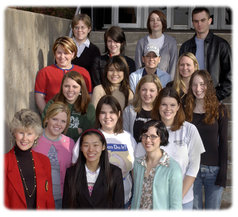
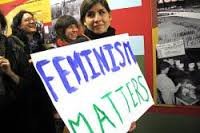
Search by Degree, Field, or Country of Origin
Most Recently Edited Samples
- Real Estate Finance Master's Degree, Hong Kong, China
- MS, Chinese, Statistics for Technological Advancement
- MS Construction Mgmt, Indian Applicant
- Graphic Design Master's, Art History Background
- PHD Health Sciences Informatics, Chinese
- PHD Economics, Policy Analysis, Chinese
- PHD Earth Sciences, Petroleum Engineering Nigeria
- Master’s Real Estate Development, Latino, Mexico
- Doctor of Special Education, Autism Spectrum
- Masters Real Estate, Los Angeles, Indian
- MS Real Estate, NYC, Harlem, African-American
- Master’s Statistics, Chinese Woman
- Master’s Global Business Journalism, Korean
- Undergraduate, Physics, Chinese
- Diversity Statement, Grad School, Hong Kong
Statements of Excellence in Women's Studies
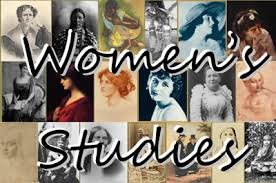
Sample Statement of Purpose for the PHD in Feminist Studies, Indian Applicant
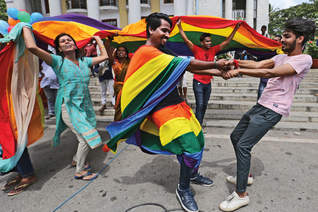 An Indian woman who could not be more engaged with issues of women’s liberation and human rights, both in India and globally, I hope to earn the PHD in Feminist Studies at the University of XXXX so as to prepare myself for a lifetime of scholarly activity and activism in the struggle for social justice, for women, minorities, and especially the LGBT community. Next year, 2018, I will complete my MA Degree in Women’s and Gender Studies at the University of XXXX. For my Master’s Thesis, I am working on queer separatism, focusing on the radical faeries group and their stance on ecological issues. My studies of the connection between women’s issues and environmental issues and their impact on the global south, has left me convinced that the repression of sexual minorities is grounded in a larger ‘crisis of reason’ as suggested by Val Plumwood. Thus, I seek the fullest possible immersion experience at the U of X in the gambit of complicated ways in which gender and sexual orientation are related to other forms of oppression - as well as the destruction of our planetary home.
An Indian woman who could not be more engaged with issues of women’s liberation and human rights, both in India and globally, I hope to earn the PHD in Feminist Studies at the University of XXXX so as to prepare myself for a lifetime of scholarly activity and activism in the struggle for social justice, for women, minorities, and especially the LGBT community. Next year, 2018, I will complete my MA Degree in Women’s and Gender Studies at the University of XXXX. For my Master’s Thesis, I am working on queer separatism, focusing on the radical faeries group and their stance on ecological issues. My studies of the connection between women’s issues and environmental issues and their impact on the global south, has left me convinced that the repression of sexual minorities is grounded in a larger ‘crisis of reason’ as suggested by Val Plumwood. Thus, I seek the fullest possible immersion experience at the U of X in the gambit of complicated ways in which gender and sexual orientation are related to other forms of oppression - as well as the destruction of our planetary home.
I look forward to a lifetime of exploration into the cultural, political and historical foundations of privilege and power. Within time, I hope to become a distinguished expert in the application of transnational perspectives to discussions of human rights and social justice. I also hope to teach in this area in the future, in India, the USA, or both. This past September 29, 2017, the USA joined India in the group of 13 members that voted against a UNHRC resolution to denounce the death penalty for same-sex relations, while no less than 27 member-states in the council voted in favor of the resolution. The fact that both of the countries which I now consider home were part of the distinct minority that voted against standing up for LGBT rights, leaves me with the firm impression that much work remains to be done in both places. My intensive and sustained research on queer history and decolonization as a student here in XXXX will help me to hit the ground running in your program and make valuable contributions to class discussions. It would be a special honor for me as a doctoral student at the U of X to study under Dr. XXXX since I deeply admire her work in the area of indigenous pedagogies and could not be more excited about the prospect of further harnessing her methodology for the illumination of queer and decolonization perspectives. Her paper "XXXX" suggests that she could be my perfect mentor. As her student, I would be challenged most rigorously to come to grips intellectually with how necropower has and continues to work in history by racializing and sexualizing – the other. I could also not be more excited about the prospect of studying under Dr. XXXX who focuses not only on post-colonial studies but also on the specific context of South Asia. Her paper “XXXX” is of special relevance for debates concerning postcolonial perspectives, in India as in other parts of the former colonial world.
Now, I understand why the majority of women in rural India do not use sanitary pads and why and how the Indian public health structure totally fails women on the bottom rungs of India’s class system. During the last year of my undergraduate studies in Economics in India, my friends and I formed a self-help group in a rural area to help women work towards the achievement of sound, sustainable, economic goals for themselves and their family. I also earned a Master’s Degree in Economics at Jawaharlal Nehru University (JNU), New Delhi, where my interest in and focus on women’s issues very much intensified. I began to learn more about the theoretical aspects of gender, especially with respect to international politics. The highlight of my last year of graduate study in India was co-authoring an academic paper: “XXXX” for my final year project, which I presented in a two-day conclave on the “Impact of Globalization on Women” organized by the National Commission for Women. I next worked as a program coordinator for a non-profit organization in Kerala to gain additional exposure to a variety of social issues impacting women. Some of the projects that I led were communication workshops for economically disadvantaged children and computer classes to enable housewives to sell handicrafts through e-commerce. In 2015, I moved to Chandigarh, where I went to work on behalf of Global Shapers, a non-profit organization specializing in women’s issues and the prevention of child sexual abuse along with treatment programs for the victims. I have contributed significantly to the organization’s efforts toward creating sexual abuse awareness programs in schools across the region.
As a PHD student I plan to further elucidate how our ecological crisis is rooted in the evolution of Western philosophy and ideology. I am already heavily engaged with research on queer ecologies and queer cultures and I presented a paper “XXXX” at the 2nd International Women’s Rights Assembly in New Delhi, exploring the ways in which debates over decolonization have an impact on the articulation of and struggle for LGBT rights in India. Another project I worked on is “XXXX” which I presented at the Assemblages Conference at UXXX, based on a study of separatist lesbian movement in Oregon. “XXXX” was the title of my contribution at the 42nd National Rural Development Conference, at Jackson, TN, suggesting pedagogical practices that can be incorporated into school curriculums so as to encourage sustainable living. I thank you for considering my application to continue my studies at the doctoral level at the University of XXXX.
Please describe your involvement in university/faculty life and activities encouraging young women into the sciences (max 300words):
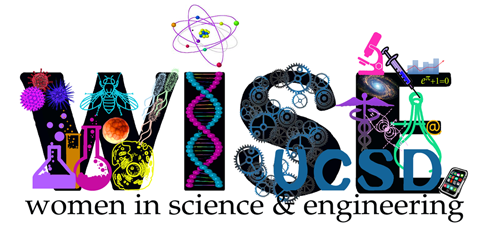 My university days afforded me several highly valuable leadership positions including First Female Departmental Senator for the Food Science and Technology Local Chapter. I was also involved in making departmental policies such as establishing flexibility concerning the availability of laboratories and ensuring/facilitating participation in symposiums, excursions, and exhibitions, coordinating between students and faculty. Optimal outcomes were achieved through a series of meetings with the departmental heads and stakeholders. Furthermore, I stepped up to represent the national middle-belt region which gave me the opportunity to coordinate among five tertiary institutions, thus boosting my chances of meeting young women in science and re-enforcing their self-confidence. Finally, being elected unopposed as the National Vice Present of _____ provided me with a broader platform and I was subsequently able to organize industry internships for a good number of female students. I believe my activities both challenged female students to push themselves harder and to become more active and successful in their careers in Science and Engineering. I have also personally mentored numerous female students as a result of my widespread and in-depth involvement in university and faculty life.
My university days afforded me several highly valuable leadership positions including First Female Departmental Senator for the Food Science and Technology Local Chapter. I was also involved in making departmental policies such as establishing flexibility concerning the availability of laboratories and ensuring/facilitating participation in symposiums, excursions, and exhibitions, coordinating between students and faculty. Optimal outcomes were achieved through a series of meetings with the departmental heads and stakeholders. Furthermore, I stepped up to represent the national middle-belt region which gave me the opportunity to coordinate among five tertiary institutions, thus boosting my chances of meeting young women in science and re-enforcing their self-confidence. Finally, being elected unopposed as the National Vice Present of _____ provided me with a broader platform and I was subsequently able to organize industry internships for a good number of female students. I believe my activities both challenged female students to push themselves harder and to become more active and successful in their careers in Science and Engineering. I have also personally mentored numerous female students as a result of my widespread and in-depth involvement in university and faculty life.
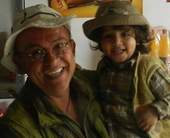
My own PHD at the University of Southern California was in Religion (1995). My doctoral dissertation, however, was on the subject of the history of violence against women in Central America. Thus, Women's Studies and Feminist Theory were a big part of my doctoral studies and made up approximately one third of the material on my qualification examinations. For this reason, it is a special privilege to help applicants to graduate school in this area.
World Humanitarian Summit Women First Responders.
Samples of My Work in Women's Studies & Closely Related Areas
Premium Statement Service by Dr. Robert Edinger
With maximum creativity, research as indicated, priority attention, and as many drafts as needed,
Dr Robert Edinger with Son David
drrobertedinger@gmail.com
1-812-675-4937
Sociology and Women's Studies Major Applying to MSW Program, Sample 1st 2 Paragraphs
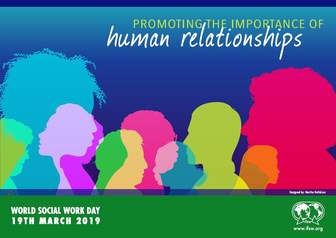 The University of XXXX (UXX) is my first choice for graduate school to earn my MSW Degree for a host of reasons ranging from the convenience of your location to the sheer excellence of your program. I was raised mostly in XXXX and I have innumerable, invaluable ties with the community, connections that will help me to excel as a student in your MSW Program and beyond.
The University of XXXX (UXX) is my first choice for graduate school to earn my MSW Degree for a host of reasons ranging from the convenience of your location to the sheer excellence of your program. I was raised mostly in XXXX and I have innumerable, invaluable ties with the community, connections that will help me to excel as a student in your MSW Program and beyond.
Completing my undergraduate studies in Sociology and Women’s Studies enabled me to make the most of my study abroad experience in Tel Aviv, Israel, (January-July 2014), serving as an Intern at the Tel Aviv Sexual Assault Crisis Center. Among other duties, I was assigned the task of reviewing, evaluating, and revising sexual assault prevention programs. This year, May-August 2015, I enjoyed the enormous privilege of serving as a Behavioral Health Specialist with The XXXX Foundation in Scottsdale, AZ, helping youth with substance abuse and mental health issues. These experiences, combined with my leadership role in the Jewish community, have convinced me that I have the heart and soul to do this work.
Women's and children's rights in Iran
The Humanitarian Side of Women´s Studies
Gender equality must be at the core of humanitarian action says the international community. And quite rightly so! At CSW60, government representatives, civil society groups and high-level UN officials highlighted the centrality of gender equality in humanitarian action and urged world leaders to make concrete commitments at the World Humanitarian Summit in May, 2016.
Building on the momentum galvanized by the first World Humanitarian Summit (WHS), to be held in Istanbul on May 23-24th, 2016, government representatives, NGOs, civil society activists and high-level UN officials gathered to discuss gender equality and women’s empowerment in humanitarian action.
Taking place on the sidelines of the 60th Commission on the Status of Women, a roundtable discussion on March 17th highlighted the need to address the specific needs and rights of women and girls in emergencies and crisis settings and the important role that women play in recovery and resilience-building. It also emphasized the centrality of gender equality and women’s empowerment in the discussions that will take place at the WHS.
“Our world is seeing the increasing effects of climate change, violent extremism and an unprecedented number of displaced people. And women and girls are affected disproportionately by these crises,” said UN Women Executive Director Phumzile Mlambo-Ngcuka, in her opening remarks. “At the same time, women are essential to recovery and resilience-building,” she said.
Stressing the specific and distinct needs of women and girls in conflicts, she said that they are frequently targeted and denied access to education, reproductive services, healthcare, and participation in economic and political life in conflict-affected areas.
Stephen O’Brien, the Under-Secretary-General for Humanitarian Affairs and Emergency Relief Coordinator, emphasized the crucial role WHS will play in providing an opportunity for all constituencies to advocate for enhancing gender equality in humanitarian action. “WHS will be a success only if it prioritizes women and girls at its core. And we look forward to leaders to make a firm commitment to women and girls, which will focus on catalyzing action for gender equality in humanitarian response.”
WHS will bring together governments, humanitarian organizations, others affected by humanitarian crises and the private sector to discuss solutions to the world’s most pressing challenges in humanitarian action. The UN Secretary-General published a report for the World Humanitarian Summit in February, calling on world leaders to renew commitments to prevent and end suffering.
Gender equality and women’s empowerment emerged as a key theme in the World Humanitarian Summit consultation process and this resulted in four proposed commitments for Istanbul, each of which was addressed by speakers at the side event.
Hibaaq Osman, Founder and CEO of Karama, a network that protects the rights of Arab women, spoke about the first commitment and empowering women’s groups to enhance women and girls’ leadership and participation. She stressed that for the Sustainable Development Goals to be implemented effectively, priority should be given to local communities. “Women have to have something at stake. The goals need to be owned and driven by the communities,” said Osman.
Highlighting the importance of women’s security, she said: “If women live in fear of their and their family’s security, they aren´t able to participate effectively in processes.”
Nyaradzayi Gumbonzvanda, Chair of the International Board of Action Aid, stressed the importance of ensuring access to quality, comprehensive sexual and reproductive healthcare for women and adolescent girls (the second commitment for WHS). “I was born and grew up in war. For some of us this summit is not just another event, it’s about our lives,” said Gumbonzvanda, adding the need for resources. “At least 15 per cent of all humanitarian funding should go to women,” she said.
“We’re facing the largest displacement crisis since the Second World War, which leads to violence and exploitation of women,” said Christine Matthews, Deputy Director of the UN High Commissioner for Refugees’ New York Liaison Office. She spoke about the third proposed commitment for WHS: implementing a coordinated global approach to prevent and respond to gender-based violence: “Through empowering women to take leaderships roles in their communities, we can strengthen the efforts to combat gender-based violence,” said Matthews.
Regarding establishing accountability, the fourth and last proposed commitment for the Summit, Kim Henderson, Head of Gender Justice at Oxfam International said, “We are accountable to women and girls living in crisis situations… Gender mainstreaming is not seen as a priority of humanitarian response, especially during the first weeks. It becomes an add-on, not a primary concern.” Henderson also stressed the importance of changing cultural and social norms as a fundamental component of accountability.
